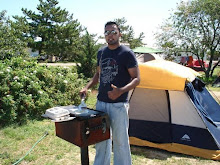After completion of this article I was somewhat pleased with the content in the article but at the same time I had some bitterness in me. I was pleased because the article provided an actual outline of how a science lesson occurred in an English Language room. However, I was displeased because the article helps to show how much emphasis is actually placed on language. Before reading the rest of this response please bear in mind that this will sound more like an argument for pro-bilingual classrooms rather than a typical response…and let me just emphasize that just because someone cannot express themselves verablly does not mean they are incompetent!
“As the student population in the US schools becomes increasingly culturally and linguistically diverse, the body of knowledge and skills required to be an effective teacher is changing.” These were the opening lines of the article that immediately stuck a chord with me. In one of our previous classes we had a discussion about our preparation for an ELL classroom. The common consensus appeared to be that we were displeased with our current abilities to teach ELL students. This line helps to show that this is not something we can avoid. As a future teacher of California it is required that teachers be certified to teach ELL students, this means that you HAVE to be accredited to teach ELL students, less you don’t want a job. California recently instilled this regulation and I am sure other states will soon implement the same, if not a similar one.
The second quote that caught my eye was that “scientists do not simply organize things… they are also concerned with processes.” This hits home with the science ideology. We are always told to make sure that our data is correct and to do this it requires experiment, after experiment, after experiment. I am sure everyone has some memory of a science class, some good and some bad. How many of us can actually say we remember learning the process skills? It is there in writing but do we know that we were learning them? Granted they may have been called other things (such as hypothesis, observation, procedure, conclusion…) but I am sure some of you, myself included, just wanted the lab to end because we felt we were not learning anything, just replicating an experiment. We do tend to organize things, but we tend to overlook the steps involved in the organization (one such being taxonomy). We can all classify something, but rarely are we metacognitive about the academics involved in the actual classification.
A third quote that grabbed my attention was “teachers may interpret EL student’s lack of familiarity with the linguistic properties of scientific “reasoning.” I feel so much emphasis is always placed on scientific language that sometimes we may lose sight of our students learning. I am someone in the science field, but at the same time I am someone in the bilingual field. With each bilingual class I take I gain a greater and greater understanding of what it means to teach a bilingual student. We always hear that science is a language of its own, and if this is the case then ELL students are not only learning 1 language, but multiple languages concurrently (which is usually the case anyways). I firmly believe less emphasis should be placed on the students ability to explain in English what they know, rather more emphasis should be placed on showing what they know. Granted this setting was in an EL science room but I can see many teachers performing subtractive bilingualism in their classroom environment in order to circumvent certain teaching strategies.
What I am getting at is this: it is inevitable that we will be seeing some from of an ELL student in our classroom. We need to be prepared to teach them and adapt to them, not try to assimilate them. I mentioned earlier that some teachers teach on the premise of subtractive bilingualism. This should not be the case! We should be showing support to additive bilingualism and help our students and ourselves. We can introduce them to the language of science while retaining their native language! It is a proven fact that a student whose knowledge and linguistics are developed in their first language will have a much easier time to cross over those fundamentals into another language, hence ADDITIVE BILINGUALISM!
Subscribe to:
Post Comments (Atom)

1 comment:
Ryan-
I didn't read the same article as you, but from your blog I get a sense that it focused a lot on language in the science classroom. I think language is an important tool for communicating, so I don't think you can completely say that language has nothing to do with it. If we are going to be teaching EL students, one of their goals should be to learn to effectively communicate in English. But I agree that the emphasis does not have to be on language alone. I do think that there are other ways of communicating, like visually or with body language, which can be reinforced in the classroom. So I think teachers should be doing both- students learn the science in ways that are comfortable for them (like in their native language) but also be encouraging practicing speaking in English.
Post a Comment